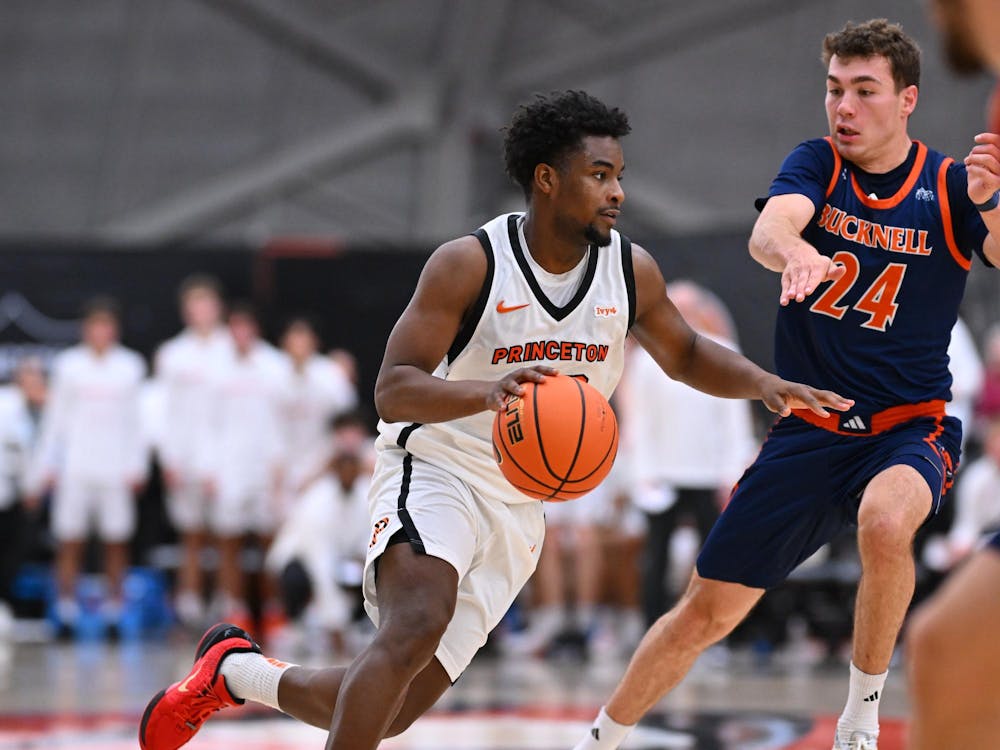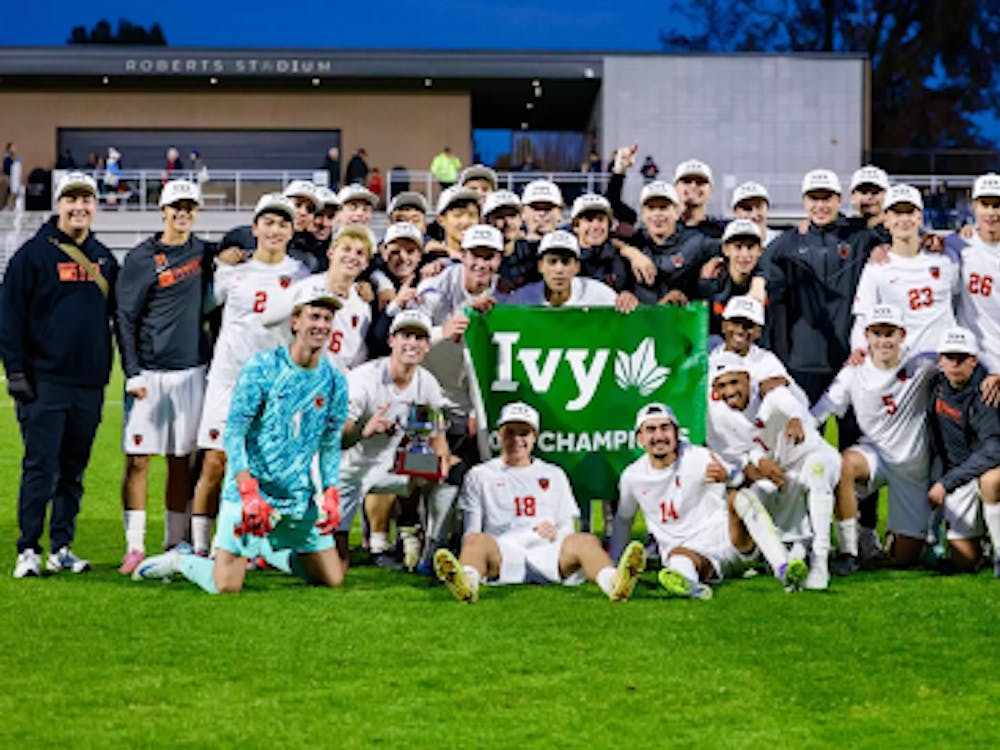“It seems like there are so many games left, but the first five games have gone by in a blur,” senior guard and co-captain Dan Mavraides said. “We’re already almost halfway done, and we’re on top, so that feels really good, and I think we take confidence in that.”
Who will the Tigers have to worry about over the final month of the season? Here’s a look at how the other seven teams have played so far:
Harvard (16-4 overall, 5-1 Ivy League)
After a terrific non-conference performance, most rankings had Harvard as the top team in the Ivy League until the Crimson lost its first duel with the Tigers, 65-61. It will be favored in the return game at Lavietes Pavilion, however, as a team that loses a road game by less than five points is more likely to win the rematch at home, and the Crimson could have just that one blemish by the time that weekend rolls around (March 4–5). Forwards Keith Wright and Kyle Casey dominate the paint against most teams (Princeton proved a rare exception), and as the Tigers saw firsthand, Harvard freshman sensation Laurent Rivard can score from anywhere. The Crimson, though a half-game back in the standings, still has strong hopes of winnings its first Ivy League title in program history.
Yale (11-9, 4-2)
The Bulldogs sent a warning to the rest of the league with a 75-67 victory at Boston College in November but failed to build on that success, as they have yet to produce another signature win. The fact that Yale ranks third is largely a function of its schedule; it was swept on its road trip to Princeton and Penn two weeks ago, though late comebacks made both games competitive. More disconcerting is the nature of its wins — all four victories came by fewer than ten points against lower-tier teams, three at home. Forward Greg Mangano and guard Austin Morgan are a potent inside-out duo, and the team’s affinity for close games should give the favorites a scare — perhaps as early as Friday’s date with Harvard — but no team can win any league without a few blowouts.
Penn (9-10, 3-2)
Yale may play many close contests, but it’s nothing compared to the late-game drama the Quakers have seen thus far — three of their five league games have gone to overtime. Penn should not have needed extra minutes to defeat Brown at the Palestra but outperformed expectations by forcing a draw against both Harvard and Princeton. Guard Zack Rosen is possibly the league’s best player, ranking third in assists per game and scoring an efficient 14.6 points per game. But don’t be surprised if the team’s second-leading scorer, forward Jack Eggleston, regresses soon; the senior made exactly one-third of his 147 three-point attempts in his first three seasons but has hit 51 percent so far this year, a rate he is unlikely to sustain.
Columbia (12-8, 3-3)
One of two opponents Princeton has yet to play, the Lions raised eyebrows with nine non-conference wins, but three losses against the four New England teams all but ended their title hopes. Columbia probably needs a sweep against Princeton and Penn next weekend to stay alive in the conference race; while the team will be playing at home, it is a daunting task. Guard Noruwa Agho leads the league with 15.8 points per game, but the Lions allow an average of 72 points, second-worst in the conference.
Brown (8-12, 1-5)
Freshman Sean McGonagill made headlines last week when he dropped 39 points en route to an 87-79 victory over Columbia — the most an Ivy League player has scored in a game since 2003. Even with that outburst, however, the rookie does not rank among the top 20 scorers; instead, his more valuable skill is passing (fourth with 5.1 assists per game). The Bears have two weaknesses in particular: they do not force turnovers or get offensive rebounds, ranking among the bottom ten teams in the nation in both skills.

Dartmouth (5-15, 1-5)
The Big Green may be a first-half team this year — tying the Tigers after 20 minutes, 34-34, and leading by six at the break on Harvard’s court. But poor second periods doomed Dartmouth both times, and the league’s most inept offense — averaging just 57 points per game — has not been able to supplant a competent defense. Although it has the same record as Cornell, the Big Green has by far the league’s worst scoring margin at -10.7 points per game.
Cornell (5-15, 1-5)
My, how the Big Red has fallen. Ten and a half months ago, Cornell was the toast of small-conference schools everywhere, coming off three consecutive Ivy League championships and a Sweet 16 appearance in the NCAA Touranment. This year, it lost its first five conference games before recovering for a victory at Brown last weekend. The Big Red has been extremely unlucky – teams outscored by fewer than four points per game rarely have a .250 winning percentage, but Cornell is 1-9 in games decided by five points or less. Expect that number to improve and the defending champions to pull off an upset or two.







